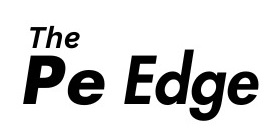.webp)
Tokenization of Assets: Is This the Future of Private Equity Investments?
June 11, 2025
Imagine owning a fraction of a luxury hotel or a high-growth startup as easily as buying a stock. That’s the promise of asset tokenization—digitizing ownership of real-world assets using blockchain technology.
For private equity, this could redefine how capital flows.
Tokenization enables fractional ownership, allowing investors to participate in high-value private equity deals with much smaller capital. It also unlocks greater liquidity, enabling peer-to-peer trading of ownership tokens and reducing lock-up periods. On-chain records improve transparency and auditability, reducing reliance on intermediaries.
Key Benefits:
- Democratized Access: Tokenization lowers the investment minimum, allowing individuals—not just institutions—to access private equity deals. This broadens the investor base and increases capital inflow from previously untapped sources.
- Liquidity and Speed: Unlike traditional PE investments, tokenized assets can be traded any time on digital marketplaces. Blockchain enables near-instant settlements, reducing delays and improving flexibility for investors.
- Operational Efficiency: Smart contracts automate ownership transfers and compliance checks. This reduces the need for lawyers, banks, and paperwork—cutting both costs and transaction times.
Key Challenges:
- Regulatory Uncertainty: Laws governing tokenized assets differ across countries and are still evolving. This creates compliance hurdles and risk for investors and fund managers operating across jurisdictions.
- Valuation and Volatility: Token prices may swing based on market sentiment, not intrinsic asset value. This makes it harder to maintain stable valuations and can deter conservative investors.
- Tech & Trust Barriers: Blockchain systems and smart contracts must be highly secure, yet bugs or hacks still happen. Institutional investors may hesitate to adopt due to lack of trust and limited standardization.
Still evolving, but the direction is clear—tokenization is not just a trend, it’s a transformation.

